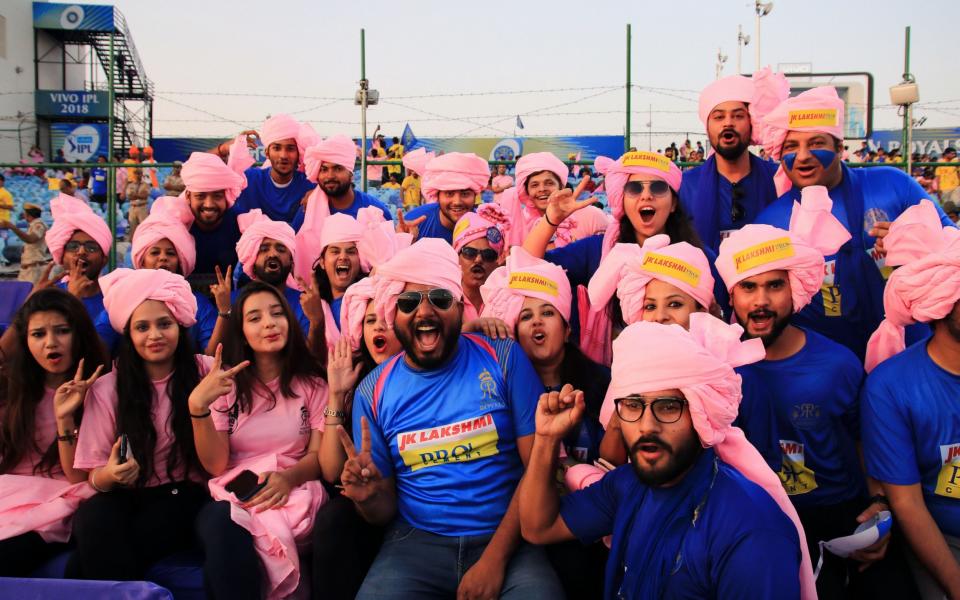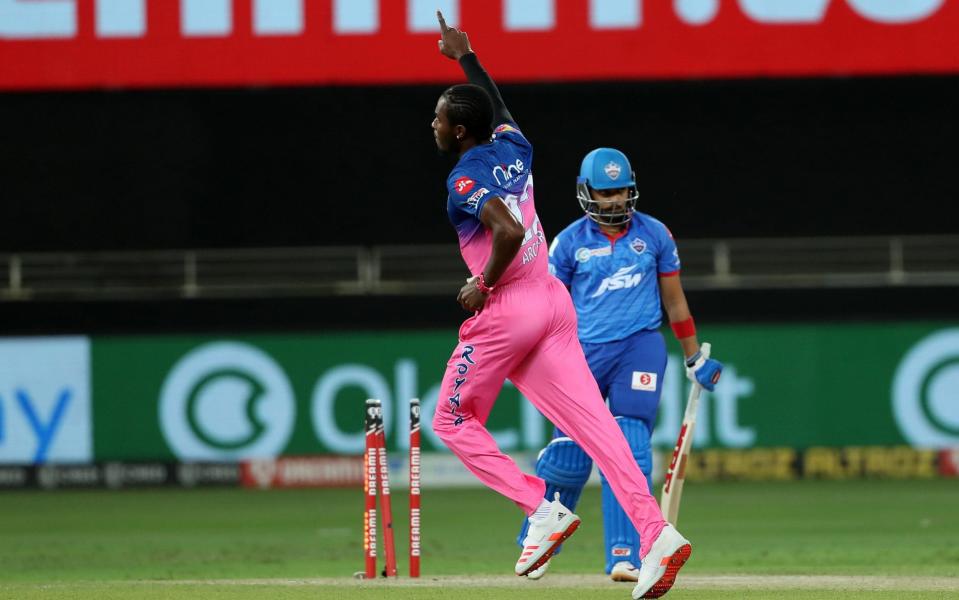The creeping influence of Rajasthan Royals in English cricket

Who runs English cricket? The Rajasthan Royals or the England & Wales Cricket Board?
The answer is the ECB of course but the Royals are becoming an ever more influential presence with contacts at the very top level of decision making in English cricket.
We are not just talking about the cream of England talent on their payroll: Jos Buttler, Ben Stokes and Jofra Archer.
But their influence stretches deeper, all the way to the ECB’s executive board.
On Nov 2 last year the ECB announced that Ron Kalifa had joined its board as an independent non-executive director. He was already a member of the Hundred board and the ECB’s audit and risk committee. Kalifa is a successful businessman who is a director of the Bank of England, a non-executive director for Transport for London and previously led Worldpay, a technology payments company. Clearly a man of talent the ECB needs as it negotiates the pandemic and the changing world of digital revenue streams.
On Jan 15 this year, two months after Kalifa was appointed an ECB non-executive director, the Rajasthan Royals announced its lead investor, Emerging Media, had increased its shareholding in the franchise to over 50 percent through new equity fundraising worth a reported £25m. Its press release announced Kalifa as one of a “number of new individual investors”.
Manoj Badale, the owner of Emerging Media and Royals co-founder, said: “Investors are now recognising the value of sports franchises. EMIPL’s increased ownership of the franchise and expanded network of US-based, value-add investors presents an exciting opportunity to drive the growth of both the Rajasthan Royals and the IPL.”
The IPL and English cricket has never been closer. The launch of the Hundred this year is the ECB’s attempt to copy the success of the IPL. Last week Telegraph Sport revealed the board is considering offering stakes in Hundred teams to IPL franchises hoping it will lead Indian players to play in the competition, boosting its value overseas considerably.
This week the IPL versus England debate deepened when Ashley Giles, the England team director, said he worried players could turn their back on international cricket and the ECB and sign IPL deals instead if they curbed their participation in the tournament.
This summer we could see Stokes, Buttler and Archer (fitness permitting) playing in the IPL final rather than a Test match at Lord’s, the first time England fans will have seen the team in action in the flesh for more than 12 months.

An ECB spokesman denied there is a conflict of interest: "Ron was appointed to the ECB Board after a rigorous selection process. His interest in the Rajasthan Royals was fully declared and he is not involved in Board discussions if there is any conflict. We are comfortable that this does not present any issues with his position on the Board."
Last week the ECB announced that Delia Bushell was not going to seek a second term as a non-executive director of the ECB. A press release said she was now “engaged in advisory and investment work for the sport and media sectors, so has decided not to seek a second term on the ECB Board given the conflicts that might arise with her new role.”
The board clearly takes conflicts of interest seriously.
The Royals-ECB link does not end at Kalifa. Sir Andrew Strauss is chairman of the ECB’s cricket committee, an influential role that has power over how the professional game is played in England. He also attends ECB board meetings in a non-voting capacity, invited by Ian Watmore when he took over as chairman in September last year.
Strauss is a consultant for the Rajasthan Royals, advising on cricket matters similar to his role with the ECB. Since leaving his job as England’s director of cricket in 2018, Strauss has become a freelance cricket consultant. He is entitled to work for wherever he can.

Rajasthan have made no secret of their links with England, and have positioned themselves as the most English of the IPL franchises.
The Royals appointed a new chief executive in September, Mike Fordham. Fordham is a former employee of the ECB. He was instrumental in setting up the Hundred competition with Tom Harrison, who recruited him from IMG where they used to be colleagues, and where Fordham helped establish the IPL.
Fordham left the ECB in 2019. Before joining Rajasthan, Fordham worked briefly as a consultant for Oakwell Sports Advisory group, specialists at linking corporate finance with sport.
Fordham was one of the the authors of a report released by Oakwell last April, at the height of the pandemic when English cricket was fearing a blank summer and losses of more than £300m, that recommended the ECB sell equity in Hundred teams to private financiers in India, where there is no shortage of rich businessmen looking to buy into cricket.
Not many have better inside knowledge of English cricket and the Hundred than Fordham. His report concluded selling equity in the Hundred would help alleviate covid losses and increase interest in India.
“The Hundred needs to be able to attract Indian players and subsequently an Indian fanbase too,” it said. “The Indian subcontinent constitutes 90% of the 1 billion cricket fans aged 16-69 globally. Indian investment into the Hundred, including from IPL team owners may facilitate the involvement of Indian players in the longer term. In addition to generating revenue out of India, this would be vital in unlocking the South Asian UK-based fanbase.”
Private investment in the Hundred is inevitable and a sensible move given it would take some of the soaring cost base off the ECB and bring new money, new ideas to a tournament that has no history and is essentially a blank piece of paper.
Badale told Telegraph Sport last year: “We would naturally have a look, as we do at opportunities all over the world, and particularly given our huge fan following in the UK.”
Kumar Sangakkara was appointed Royals’ director of cricket in January. Sangakkara is also president of the MCC.
Cricket is a small world, and connections are everywhere so it is no surprise that an IPL franchise with a British founder has established links within English cricket.
But it is a big change from a decade ago. Then the Royals linked up with Hampshire as they dreamt of creating the world’s first franchise across continents. However the ECB, spooked by the move, were very hostile at that point. Hampshire and the Royals was an experiment that did not last. Now the Royals influence is more subtle.
Why does this matter? There is no suggestion anyone is working against the interests of English cricket and all are incredibly experienced, knowledgeable figures the sport benefits from having on board.
But it’s important to realise the IPL’s tentacles are not just limited to the cricket field and player appearances. It’s creeping into more and more aspects of English cricket.

 Yahoo Sport
Yahoo Sport 





































